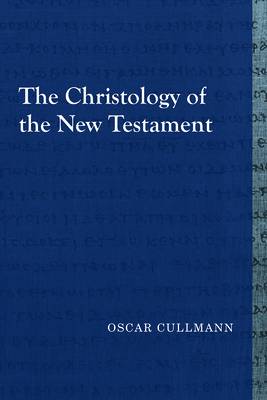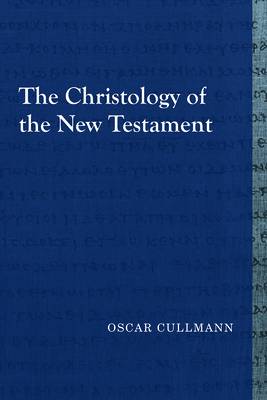
- Retrait gratuit dans votre magasin Club
- 7.000.000 titres dans notre catalogue
- Payer en toute sécurité
- Toujours un magasin près de chez vous
- Retrait gratuit dans votre magasin Club
- 7.000.0000 titres dans notre catalogue
- Payer en toute sécurité
- Toujours un magasin près de chez vous
Description
Oscar Cullmann's The Christology of the New Testament was the standard student textbook in New Testament courses and the measuring stick for scholarly inquiry into Christology for decades. An enduring classic, this book is based on a lifetime of study from one of the most creative and disciplined minds ever to tackle the problem of New Testament Christology.
Cullmann moves methodically through his careful philological and textual consideration of the various titles used for Jesus in the New Testament, dividing them into four groups: titles used to refer to Jesus' earthly life (prophet, servant, and priest); titles used to refer to Jesus' eschatological work (Messiah and Son of Man); titles used to refer to Jesus' present work in the church (Lord and Savior); and titles used to refer to Jesus' preexistence (Word and Son of God). In each case, he weighs the New Testament's usage of each title against the Old Testament, Second Temple Jewish, and Hellenistic semantic backgrounds. Though Cullmann sifts the evidence analytically and presents it systematically, the end result is not simply a christological lexicon. Instead, he creates a cohesive picture by showing that early Christianity's view of Jesus originated with the historical Jesus himself. For Cullmann, New Testament Christology was not a later Hellenistic imposition upon earlier Jewish beliefs about Jesus. Rather, the titles used for Jesus form a chain of specific events centered around Jesus, events that fit into and extend the long string of God's saving deeds in history. Cullmann's Christology remains as instructive and important today as when it first appeared--and still repays careful reading and study.Spécifications
Parties prenantes
- Auteur(s) :
- Traducteur(s):
- Editeur:
Contenu
- Nombre de pages :
- 360
- Langue:
- Anglais
- Collection :
Caractéristiques
- EAN:
- 9781481309547
- Date de parution :
- 15-07-18
- Format:
- Livre broché
- Format numérique:
- Trade paperback (VS)
- Dimensions :
- 152 mm x 229 mm
- Poids :
- 530 g

Les avis
Nous publions uniquement les avis qui respectent les conditions requises. Consultez nos conditions pour les avis.






